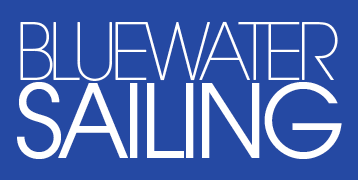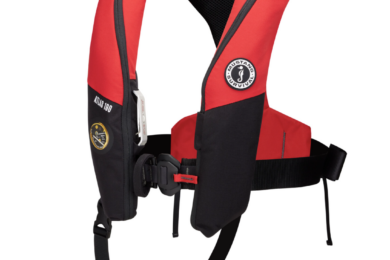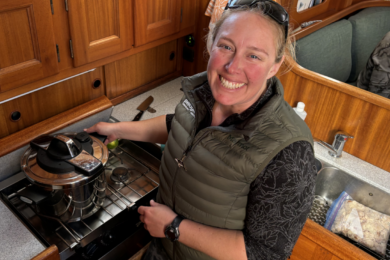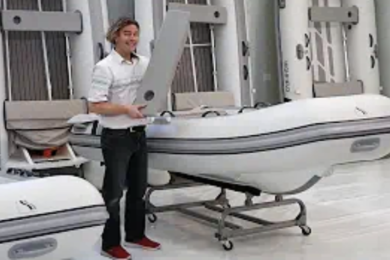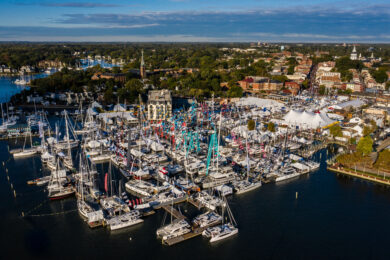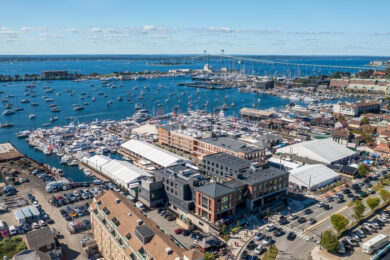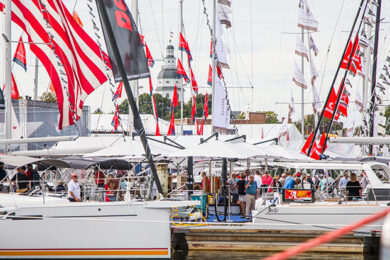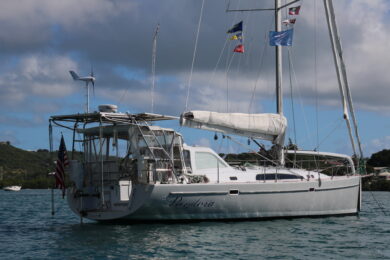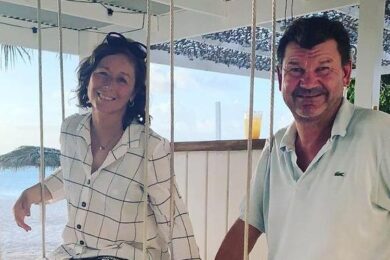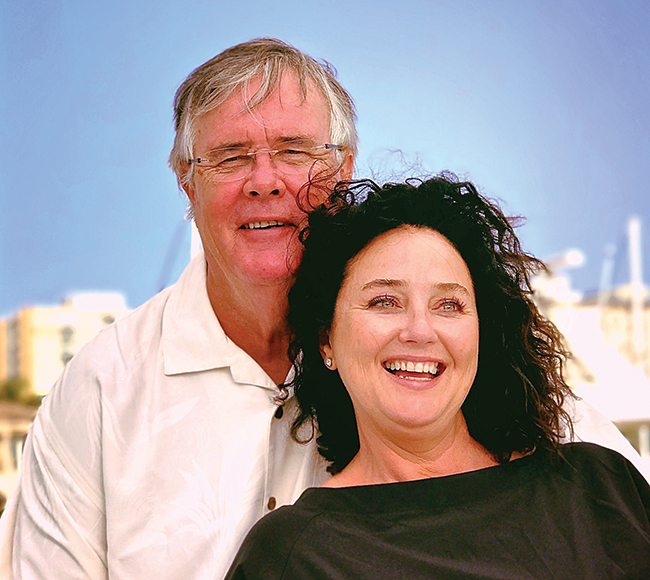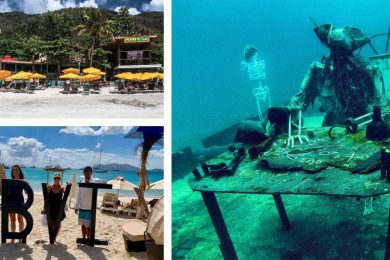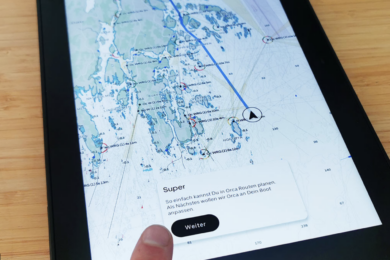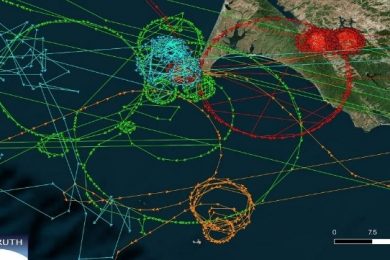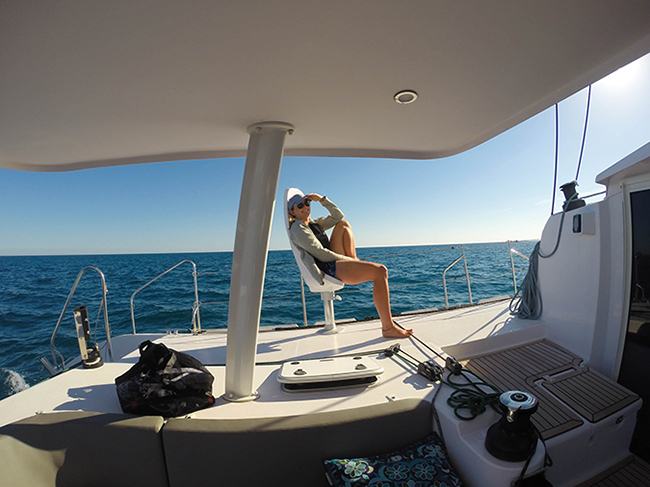Why I decided to sail around the world after college graduation (published October 2017)
Senior year of college is a poignant time, filled with nostalgia and excitement about the future, but it is also very stressful. Professors, friends, strangers, and most relentlessly, parents, anyone who knows you are about to graduate, are curious about what comes next. For some, especially those deep in fruitless job searches, this question is pure agony; those with graduate school acceptances and job offers find it slightly easier to handle, the answer ready at all times when speaking to an adult. Answering this ever-present question always came easily to me, my slightly amused smile awaiting the reaction of the inquisitor: I’m sailing around the world.
I’m lucky to have grown up in a family that loves the ocean; I’ve been sailing on boats of all sizes since before I can remember, and we had a beach house on Galveston Bay, just an hour outside of our home in Houston. My brothers and I are triplets, so we all entered the high-stakes Kemah, Texas Opti-sailing circuit at the same time, collectively crushing the competition. Just kidding. I preferred sailing on bigger boats, and the day my Opti fell off of our trailer on the highway I proclaimed myself done with the floating bathtubs. Luckily for me, my dad was hatching a plan to move us onto one of those bigger boats, and in 2005 the dream came true.
The sailboat was a Tayana 52 named Cayuse, a good size for three 10-year-olds and two adults. Our introduction to cruising was a four-month trip in the eastern Caribbean, the perfect place for short island hops and off-the-boat snorkeling. My mom homeschooled us, conducting our science classes over coral reefs and quarantining us in the cockpit for mandatory reading. It was a blissful time, but soon obligations took us back to Houston. That taste of cruising life was enough to hook my dad, and it’s a wonder we waited two years to set sail again.
 In 2007, during my peak awkward middle-school years, Cayuse headed south to Mexico, Belize, Guatemala and the Bay Islands of Honduras. This time we took a whole year to cruise, and it was even better than the first trip. The diversity of landscape found in the western Caribbean makes it an incredible cruising ground; the cavernous cenotes of Mexico, the glorious barrier reef in Belize, the lush Río Dulce in Guatemala and the tropical paradise found in the Bay Islands offer a variety of experiences unlike anywhere else in the world.
In 2007, during my peak awkward middle-school years, Cayuse headed south to Mexico, Belize, Guatemala and the Bay Islands of Honduras. This time we took a whole year to cruise, and it was even better than the first trip. The diversity of landscape found in the western Caribbean makes it an incredible cruising ground; the cavernous cenotes of Mexico, the glorious barrier reef in Belize, the lush Río Dulce in Guatemala and the tropical paradise found in the Bay Islands offer a variety of experiences unlike anywhere else in the world.
I returned to the drudgery of middle school with a suntan, some Spanish and a better grasp of just how big and diverse the world is. High school came and schoolwork and sports became my main focuses, and the boat trips slowly faded into memory. The boat was always there for weekend sails around Kemah and Galveston, but it seemed Cayuse’s world traveling days were done. Soon my brothers and I were off to college, the two of them to Texas A&M University and I to Wake Forest University, and I never imagined I would live on a sailboat again.
That is, until the summer before sophomore year of college. I sailed with my dad, brother and a few crew in a race from Galveston to Pensacola, the first leg of Cayuse’s journey up to Annapolis, where she was going to be sold. Yup, we were upgrading – to a catamaran! After months of scouring boat shows, we settled on an Outremer 51. It seemed like my dad’s lifelong dream of circumnavigating the globe was finally coming to fruition, and there was no question of which child would crew; my brother Cameron was determined to go to law school, and Travis, ever the practical finance major, seemed on course to get a job in that field. Me? Of course I was in.
MORE THAN GRADUATE SCHOOL
So much pressure is put on your decision for life after graduation, it often feels like there are only two options for post-grads: graduate school or a job. There is such an urgency given to the process of finding your place in the adult world, many students rush into jobs they’ll end up leaving in a year or two, or find themselves in graduate programs they aren’t fully committed to, and thus drop out of. The shock of leaving college can be enough on its own, but a new city, intimidating job or graduate program can intensify this feeling. Of course, financial issues are always at play; money is necessary to survive. But for those who have the means, and the opportunity, why not try something different? Why wait?
 This was the attitude I took when I decided to join my parents in sailing around the world with the World ARC rally. They were offering me a spot, and it felt like a complete waste not to take it. More people climb Mount Everest every year than sail around the world, and I knew I might not get this chance again.
This was the attitude I took when I decided to join my parents in sailing around the world with the World ARC rally. They were offering me a spot, and it felt like a complete waste not to take it. More people climb Mount Everest every year than sail around the world, and I knew I might not get this chance again.
The anxiety I felt about figuring out what I was going to do after college was outweighed by my overwhelming desire to see the world. In a liberal arts university like Wake Forest, there is an emphasis on students receiving a well-rounded learning experience; classes are required in the humanities, sciences, mathematics and the English and History departments, and there is a pretty demanding foreign language requirement. While I see the importance of educating the whole person, you can only learn so much in a classroom; you need to have meaningful experiences to enhance this knowledge, and where better to learn than someplace new?
In the English major, we read myriad books from all over the world, but reading a book about a place is far different from actually experiencing it. How could I keep up the Spanish I honed during four years of majoring in the subject without actually speaking the language? I felt well-rounded upon graduation day, but I need to go out into the world to see just how my knowledge applies in the world, and continue the learning I started in college.
 Traveling is a profound lesson in empathy; in order to understand another culture, you must experience it firsthand. Empathy is essential in the tumultuous world that we live in, it allows us to connect with people from all walks of life, and to recognize their lives as invaluable to this world as are our own. Ethnocentrism on a small scale inhibits basic kindness and leads to misunderstanding; on a national scale it starts wars. I hope by traveling to places across the globe my perception of the world will change more than it would if I had moved to a big city for a job.
Traveling is a profound lesson in empathy; in order to understand another culture, you must experience it firsthand. Empathy is essential in the tumultuous world that we live in, it allows us to connect with people from all walks of life, and to recognize their lives as invaluable to this world as are our own. Ethnocentrism on a small scale inhibits basic kindness and leads to misunderstanding; on a national scale it starts wars. I hope by traveling to places across the globe my perception of the world will change more than it would if I had moved to a big city for a job.
In addition to a better understanding of people, travel by sailboat allows you to see the natural world in a totally different perspective. When you can hop on a plane and fly across an ocean in eight hours, it may seem wildly inefficient to sail across that same ocean in 15 days. On long passages you see every sunrise and sunset perfectly, with no buildings to clutter the horizon. At night, the stars are out in their full glory, with no light pollution to block them out. The natural world determines your every move, whether it be wind, storms, fog, temperature or whatever else you happen upon at sea. You are at mercy to the elements, a way of living akin to that of people hundreds of years ago, albeit with significantly more advanced technology. The journey is a meditative lesson in patience, conservation and coexistence with nature, and when you arrive at your destination it feels earned, unlike stepping off a short flight.
Living on a sailboat is similar to living in a tiny apartment with multiple roommates in that it is an equally small space, and I have two roommates, but that’s about where the similarities end. The boat is our home as well as our means of transportation, and with our watermaker and solar panels it is also responsible for much of our health and wellness. Coexistence on a sailboat requires more cooperation and attention to maintenance than living in a house or apartment, and learning how to cohabitate in this way forces me to step up my game as a roommate. Unlike the previous cruising trips, when I was younger and less capable, now I have to carry my own weight.

I’m in no hurry to have a 9 to 5 job just yet. There will always be entry-level jobs available, but with the increasing temperature of our planet many parts of the natural world are vanishing. Scientists have declared the Great Barrier Reef in Australia dead, giant icebergs are breaking off of Greenland and floating out to sea, coastal cities are slowly going underwater, and species lose their habitats every day to overfishing, deforestation and human interference. Parts of the natural world are disappearing, and I need to get out there and see it while I still can.
Trading cubicle walls for an ocean view was an easy choice at first, but it was hard to leave my friends behind and do something completely different. Moving in with my parents onto a sailboat after four years of independence has been interesting, and I expect it’ll only get weirder, but adulthood is full of unexpected things, right? I know in a year I won’t regret my choice, and my friends always have a place to stay should they want to travel across the world to visit!
